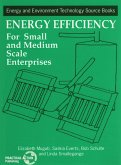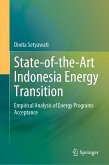As environmental problems continue to pose a threat to the well-being of people all over the world, achieving pollution control through innovative methods and at a lower cost becomes very attractive. However, cost-effectiveness and technical rationality are often at odds with political goals and policy traditions. Lada V. Kochtcheeva analyzes the introduction of flexible laws and regulations in both air and water quality policies in the United States and the Russian Federation from the 1960s to the present, and highlights the replacement of command and control systems with flexible instruments such as incentive programs, tradable permits, and pollution charges. With its rich comparative institutional analysis, the book contributes to the debate on institutional dynamism, policy innovation, and new modes of regulation, while simultaneously addressing the processes and attributes of good governance.
Dieser Download kann aus rechtlichen Gründen nur mit Rechnungsadresse in A, D ausgeliefert werden.









